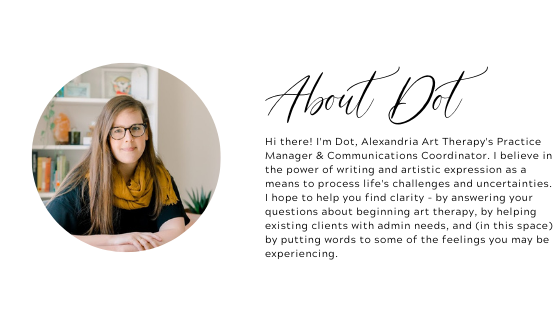Self Care & Infertility: Part 2
This blog post is part two of a two-part series on infertility and self care. Click here to read part 1.
When you are experiencing infertility, every month introduces a new timeline for your whole life.
If we’re successful this month, we could have a baby at Christmastime.
Should I schedule a vacation knowing if we get pregnant I could be morning sick at the beach?
Is our current home big enough for a baby? Should we move to be in a different school district? Or will that ever matter?
I really like these jeans, but should I spend the money? What if I get pregnant and don’t ever fit in them again?
Some of these considerations may seem premature or mundane. But wanting to bring a child into the world is so life-changing that it really can work its way into every thought you have about the future.
Of course, the thoughts aren’t always so hopeful.
It’s Mother’s Day again, and I’m still childless.
Another birthday and no baby. I wonder how long this will even be physically possible.
Who will take care of me when I’m old?
Self care during infertility is so important because it can help you honor and live in your present life, not just dwell in your hopes and fears about the future.
FIND YOUR FLOW
Time moves in especially cruel ways when you are trying to have a baby. Your brain is overrun by planning and worrying and grieving. Time is both slipping away too fast (well, there goes another lost month) and moving in slow motion (the two-week wait has 45 days in it, right?). Finding a way to enter a flow state is a good way to, essentially, take a break from time.
Everyone’s path to a flow state is a little different. It may help to think back to your childhood--what activities did you enjoy doing then? Making art, writing, playing music, exercise, or gardening are tasks that might get you there. Art making, especially, can help you lose time while processing some of the harder emotions you are experiencing.
If you’re not sure how to begin, working with an art therapist can help. Your therapist can show you effective tools for when you want distraction and relief from stress. Your therapist is also there to hold space for you to talk through your experiences and thoughts about the future.
REMEMBER SELF-COMPASSION
I once overheard a conversation that went something like this:
We’re having trouble getting pregnant, and we might start IVF soon.
Ohhh. Whose fault is it?
Wow.
It’s no one’s fault. And it’s also no one’s business.
Many people who experience infertility find their own thoughts drifting towards blame and self-criticism (and conversations like the one above don’t help). Even if you or your partner are experiencing a medical difficulty, there is nothing morally wrong with either of you, and it’s not likely that any action you took in your life is now preventing you from getting pregnant. It’s not your fault.
Infertility is hard enough without labeling yourself as “broken.”
Practicing self-compassion is not always easy. Some people find it helps to talk to yourself like you would a dear friend. Or it might help to write reminders or affirmations for yourself--a note taped to your fridge, on your phone wallpaper, or on your bathroom mirror.
I am worthy of love and care.
I am whole, I am enough.
Or, if it speaks to you, Glennon Doyle’s now-famous I can do hard things.
TAKE BACK CONTROL
Infertility can make you feel out of control. Despite your planning and trying, you’re still not pregnant. And if you seek fertility treatment, it’s like climbing into a roller coaster car with a very flimsy seatbelt. It may be a bumpy ride, and you’re suddenly at the mercy of drugs, examinations, procedures, and endless appointments.
What small things can you do to regain control during this uncertain time? Gathering information might help you feel like you are in the driver’s seat of your own life. Ask lots of questions and do all the reading on fertility procedures, if that helps. You might organize all your medical paperwork or materials so that the chaotic sprawl of bills and test results feels more manageable.
Notice when it begins to feel like you’re operating more from anxiety rather than intentional control. How will you know? One way is to tune into your body. Is my heart racing when I’m reading information or organizing my paperwork? Do I feel like I’m floating above my body? Do my thoughts feel like a rapid stream-of-consciousness spiral? These might be signals that grounding yourself for a moment might be helpful.
Create a ritual around your clinic visits: a soft, comforting clothing item. A playlist of calming (or energizing!) music for the commute to the doctor’s office. A mantra or affirmation you always say in the waiting room. (I am not broken. I am already a good mother.) A coffee or treat for yourself after each appointment. You may not be able to control which direction the roller coaster turns next, but you can make the car a little nicer while you’re inside it. You can tighten that flimsy seatbelt.
HONOR YOURSELF
I really like Jessica Hepburn’s advice: don’t give up “Project You” for “Project Baby.” The journey from infertility to potential parenthood can be very long and may not ultimately give you what you want. It’s important, even in the all-consuming focus of longing for a child, not to forget the other things you want for your own life.
What other things in your world bring you joy, excite you, or delight you? How can you honor yourself in addition to honoring your desire to bring a child into the world? Maybe this looks like continuing to focus on your career, or learning a skill you’ve always wanted to try. Or instead of adding one more future-focused thing to your plate, you might think of how you can enjoy your current life. Begin a practice of mindfulness. Redecorate a room in your home. Explore all of the parks in your city. Reinvigorate your relationships with friends.
The grief of infertility can feel so heavy that it’s hard to spend energy on anything else. But Project You is worth just as much, even more, than Project Baby.
Want to see how art therapy can provide an outlet during this difficult time? Email info@alexandriaarttherapy.com to be matched with an art therapist who can help.


